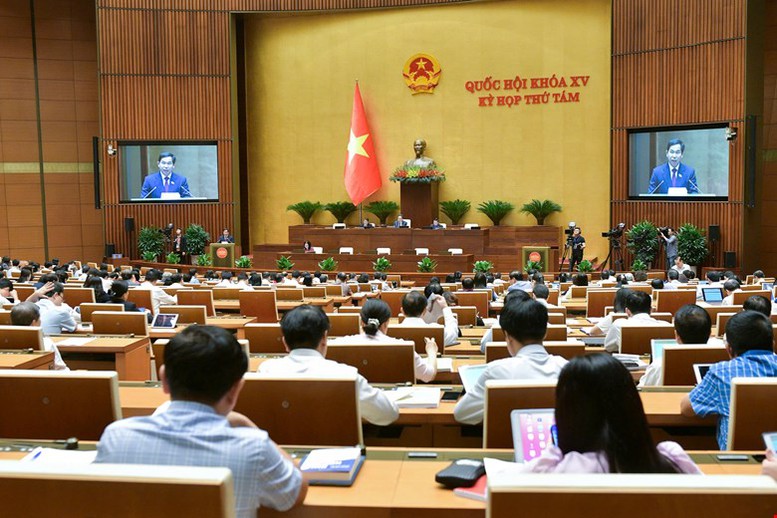Vietnamese parliament sets GDP growth target of 7% for 2025
The National Assembly has set Vietnam's economic growth target for 2025 at 6.5-7%, striving for 7-7.5% and an expected GDP per capita of approximately $4,900.
The National Assembly on November 12 approved a resolution on socio-economic development, with nearly 89% of deputies voting in favor. The resolution calls for GDP growth of 6.5-7%, slightly higher than the government's target of over 7% for the current year, and sets inflation control at 4.5%.
| Overview of the National Assembly session. Source: quochoi.vn |
In earlier discussions, some delegates suggested exploring double-digit GDP growth targets. However, Chairman of the Economic Committee of the National Assembly Vu Hong Thanh explained that the government’s projections take into account both favorable and challenging global economic conditions to ensure sustainable recovery and development.
The National Assembly urged the government to prioritize economic growth, support business production, control inflation, and maintain major economic balances. Monetary and fiscal policies should be flexible and targeted.
According to the resolution, the government still has room to mobilize additional development resources in the areas of public debt, government debt, and budget deficits. On public investment, the National Assembly emphasized accelerating disbursement early in the year, enhancing decentralization, and strengthening accountability while avoiding fragmented investments.
Additionally, the government should expedite the restructuring of credit institutions and address bad non-performing loans, with a particular focus on weak banks, by 2025.
The resolution calls for the cancellation or suspension of unnecessary or inactive projects to reallocate funds to key national infrastructure, while local governments should use their resources for regional connectivity projects with a “local decision, local accountability” approach.
The National Assembly also emphasized the need for stronger reforms to remove institutional barriers and resolve issues hindering the recovery and development of key markets, particularly in gold, bonds, and real estate.
For electricity supply, the government is tasked with effectively implementing the Power Plan VIII, amending the Electricity Law, and proposing the resumption of nuclear and renewable energy projects, including hydrogen energy.
During a question-and-answer session on November 12, Prime Minister Pham Minh Chinh stated that the government has proposed to restart the nuclear energy project and strongly develop offshore wind power. He also recommended that the National Assembly consider amendments to the Electricity Law to enable regulatory breakthroughs and remove barriers to power generation and grid development.











